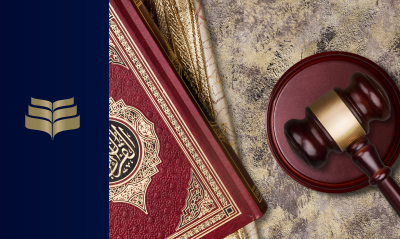Qawaid Fiqhiyyah
Instructor
Tayyibun
13
Students
enrolled
- Description
- Curriculum

Al-Qawaa’id Al-Fiqhiyyah is the study of legal maxims in fiqh under which many issues fall and from which rulings can be directly derived. Many of these maxims are taken directly from the Qur’aan or from hadith of the Prophet sall Allahu ‘alaihi wa sallam. This subject is very important for both the mujtahid and for the layman. This is because it allows the mujtahid to derive rulings regardless of whether or not there is text present. As for the layman, it helps him to appreciate the aims of the Shari’ah and the way in which the scholars of the past have helped preserve the deen.
This course is based upon Imam As-Sa’di’s ‘Al Qawaa’id Al Fiqhiyyah’ and covers over 25 maxims which are all broadly linked to the five main legal maxims. Each of these maxims will be explained in depth, with their evidences and examples to make the issue clear to students. Any related issues will also be mentioned to give students a comprehensive understanding of the issue.
During this course you will learn:
– What are the main legal maxims of the Shari’ah?
– What types of conditions exist in the Shari’ah?
– What is the definition of the intention?
– Can we change the intention during an action?
– Can two deeds be carried out by one intention?
– What does the Shari’ah give preference to when there is a clash of benefits?
– How does the Shari’ah define the ‘greater good’ and the ‘lesser of the two evils’?
– What types of harm does the shari’ah overlook?
– What do you do if you’re in doubt as to whether or not you are in a state of wudhu?
– What is considered a ‘difficulty’ such that it brings about ease?
– What is the original ruling of water?
– What role does the nafs play in the Shari’ah?
– Are we allowed to stipulate conditions to a contract?
– Does the shari’ah recognise customary actions?
– Are we allowed to draw lots to decide on matter?
– If a person carries out an obligation on behalf of someone else, can he ask to be reimbursed?
– If the legal reasoning (‘illah) behind a command/prohibition is no longer present then does this eliminate the command/prohibition?
– If a person accidently destroyed another person’s property, does he have to pay for the damages?
– What are the main legal maxims of the Shari’ah?
– What types of conditions exist in the Shari’ah?
– What is the definition of the intention?
– Can we change the intention during an action?
– Can two deeds be carried out by one intention?
– What does the Shari’ah give preference to when there is a clash of benefits?
– How does the Shari’ah define the ‘greater good’ and the ‘lesser of the two evils’?
– What types of harm does the shari’ah overlook?
– What do you do if you’re in doubt as to whether or not you are in a state of wudhu?
– What is considered a ‘difficulty’ such that it brings about ease?
– What is the original ruling of water?
– What role does the nafs play in the Shari’ah?
– Are we allowed to stipulate conditions to a contract?
– Does the shari’ah recognise customary actions?
– Are we allowed to draw lots to decide on matter?
– If a person carries out an obligation on behalf of someone else, can he ask to be reimbursed?
– If the legal reasoning (‘illah) behind a command/prohibition is no longer present then does this eliminate the command/prohibition?
– If a person accidently destroyed another person’s property, does he have to pay for the damages?
Course Structure
-
1Qawaid Fiqhiyyah - Lesson 1
-
2Qawaid Fiqhiyyah - Lesson 2
-
3Qawaid Fiqhiyyah - Lesson 3
-
4Qawaid Fiqhiyyah - Lesson 4
-
5Qawaid Fiqhiyyah - Lesson 5
-
6Qawaid Fiqhiyyah - Lesson 6
-
7Qawaid Fiqhiyyah - Lesson 7
-
8Qawaid Fiqhiyyah - Lesson 8
-
9Qawaid Fiqhiyyah - Lesson 9
-
10Qawaid Fiqhiyyah - Lesson 10
-
11Qawaid Fiqhiyyah - Lesson 11
-
12Qawaid Fiqhiyyah - Lesson 12
-
13Qawaid Fiqhiyyah - Lesson 13
-
14Qawaid Fiqhiyyah - Lesson 14








